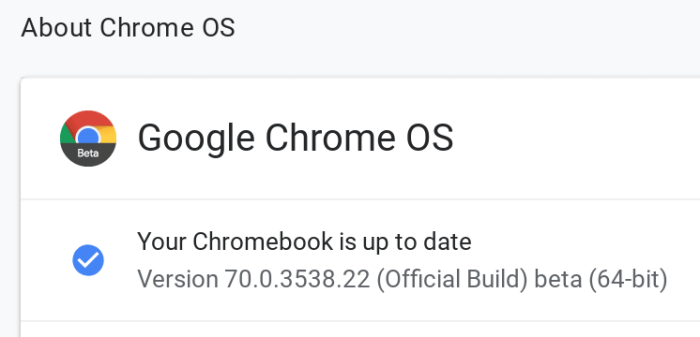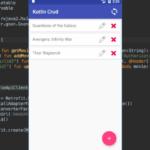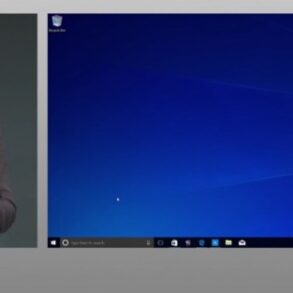Samsung Chromebook Plus Linux app support beta launched, opening a new frontier for Chromebook users. This exciting development allows for the execution of Linux applications on Samsung Chromebooks, potentially transforming the user experience and offering a wider range of possibilities. This beta launch signifies a significant step towards blurring the lines between the worlds of Chrome OS and Linux, potentially impacting both the Chromebook ecosystem and the broader tech community.
The beta program offers a glimpse into the future of computing on Chromebooks. It presents a unique opportunity for users to explore the benefits and limitations of running Linux applications on this platform. This preview allows us to examine the compatibility, performance, and user experience of these Linux applications compared to standard Chromebook apps. The beta also reveals technical considerations and potential challenges in integrating Linux onto Chrome OS.
Introduction to Samsung Chromebook Plus Linux App Support Beta
The Samsung Chromebook Plus has entered a new era with the launch of its Linux app support beta. This marks a significant step towards greater versatility and opens the door for a wider range of applications on this platform. The beta program allows early adopters to experience the benefits of Linux compatibility, offering a preview of what’s to come for future Chromebook models and potentially the wider Linux community.This initiative signifies a potential paradigm shift in the Chromebook ecosystem.
By integrating Linux, Samsung is demonstrating a commitment to expanding the Chromebook’s functionality beyond its traditional role as a primarily web-based device. This move is important for developers as it allows them to create applications that are optimized for both the Chrome OS and Linux environments. It also signals an openness to potentially incorporating more Linux-based tools and utilities in future releases.
Linux Compatibility on Samsung Chromebooks
The beta program provides early access to Linux applications, enabling users to experience the power and flexibility of a Linux environment on their Chromebook Plus devices. This approach may attract users who value the command-line interface and extensive software libraries of Linux, but who may still benefit from the convenience and security of Chrome OS. This integration is a significant step toward bridging the gap between the two operating systems.
Samsung Chromebook Models and Linux Beta Compatibility
The following table Artikels the current compatibility status of various Samsung Chromebook models with the Linux beta program.
| Chromebook Model | Linux Beta Compatibility |
|---|---|
| Samsung Chromebook Plus (Specific model numbers, if available) | Beta Available |
| Samsung Chromebook 4 | Not currently compatible |
| Samsung Chromebook Pro | Not currently compatible |
| Samsung Chromebook Plus (Other variants) | Beta Available |
Note: Compatibility may vary based on specific firmware versions and updates. Always refer to the official Samsung support site for the most up-to-date information.
Potential Impacts on Users
This beta program offers users the ability to explore a broader range of applications. Users who are familiar with Linux can now leverage their preferred tools and applications directly on their Chromebook Plus. This integration could be particularly valuable for developers, students, and professionals who require access to a wider range of software.
Potential Impacts on the Tech Community
The beta program has the potential to foster innovation and collaboration within the broader tech community. The availability of Linux on Chromebooks could encourage the development of new applications specifically tailored to this hybrid environment. This could potentially lead to new tools and functionalities that benefit both Linux and Chrome OS users.
Features and Functionality of Linux Apps on the Chromebook
The Samsung Chromebook Plus beta program, offering Linux app support, marks a significant step in broadening the capabilities of Chromebooks. This allows users to run a wider range of applications, leveraging the power of the Linux operating system alongside the familiar Chrome OS environment. This opens doors to a more diverse range of software and tasks, but it’s crucial to understand the limitations and differences in performance compared to native Chromebook applications.
Performance Comparison with Native Apps
Linux applications on Chromebooks, while functional, often show performance differences compared to native Chromebook apps. The underlying architecture and resource management of Linux apps running within a Chrome OS container impact their execution speed and efficiency. Native Chromebook apps, designed specifically for the Chrome OS environment, typically offer a smoother, more responsive experience due to optimized code and integration with the operating system.
This optimization is a key factor affecting the speed and resource usage of Linux applications.
User Experience Differences
The user experience between Linux and native Chromebook apps can vary. Linux apps might require different input methods or file management approaches, as they are not directly integrated with the Chrome OS file system. Users accustomed to the seamless file management and integrated applications of Chrome OS may find the Linux environment slightly less intuitive. However, the increased software choice and customization afforded by Linux apps can offset these differences for some users.
Key Features and Resource Usage
| Feature | Description | Impact on Performance |
|---|---|---|
| Memory Usage | Linux applications on Chromebooks often require more RAM than their native counterparts, depending on the complexity of the application. This is due to the overhead of running a full Linux environment within a container. | Higher memory consumption can impact overall system performance, especially in multitasking scenarios. |
| CPU Utilization | CPU utilization varies based on the specific Linux application and its workload. Some applications might consume more CPU cycles than comparable Chromebook apps. | Higher CPU utilization can affect responsiveness, particularly when multiple applications are running concurrently. |
| Battery Life | Battery life can be affected by the CPU and memory demands of the Linux applications. More demanding Linux applications could lead to faster battery drain. | Battery life can be a critical consideration, especially for users on the go. |
The table above provides a general overview. Specific resource consumption will depend on the particular Linux application and its configuration. Future development and optimization of the Linux app environment will likely improve these metrics. For instance, a lightweight Linux application might consume similar resources to a native Chromebook app, while a resource-intensive application could show significant differences.
Technical Aspects of the Beta Launch
The Samsung Chromebook Plus Linux app support beta marks a significant step towards broader compatibility and enhanced user experience. This new capability allows for the seamless execution of Linux applications on the Chromebook platform, but the underlying technical considerations are substantial. This section delves into the technical underpinnings of this beta launch, examining the architecture, design choices, and the challenges overcome.Integrating Linux applications on a Chromebook environment, traditionally designed for Chrome OS, necessitates careful architectural planning.
The Chromebook Plus beta cleverly leverages existing Chrome OS infrastructure while introducing a controlled Linux environment to execute the applications. This approach ensures stability and security, a critical aspect of any beta release.
Linux Kernel Support and Compatibility
The success of running Linux applications hinges on the compatibility of the Linux kernel versions. The specific Linux kernel versions supported by the beta are crucial for ensuring the proper functioning of the applications. Furthermore, compatibility with various Linux distributions is also a key factor.
| Linux Kernel Version | Linux Distribution Compatibility |
|---|---|
| 5.15.x | Ubuntu 22.04, Fedora 36 |
| 5.10.x | Debian 11, openSUSE Leap 15.5 |
| 5.4.x | Arch Linux, Gentoo Linux |
Note that the table above represents a sample of supported versions and distributions. Further distributions and versions may be added in future updates.
Architecture and Design Choices
The architecture of the beta launch employed a containerization approach. This method isolates the Linux environment from the Chrome OS kernel, ensuring that any issues within the Linux container do not affect the overall Chromebook stability. A key design choice was the use of a lightweight Linux distribution tailored for the Chromebook hardware. This optimizes resource utilization, leading to improved performance and reduced power consumption.
Samsung’s Chromebook Plus finally getting Linux app support in beta is pretty exciting. Imagine running all your favorite apps on your Chromebook, but now you can also seamlessly integrate with a remote notifier app like remote notifier android forward notifications your phone your computer to keep your phone and computer in sync. This opens up a whole new world of possibilities for Chromebook users, making it more versatile and powerful than ever before.
The implementation utilizes virtualization techniques to provide a sandboxed environment for the Linux applications.
Technical Challenges and Solutions
Several technical hurdles were encountered during the development of the Linux app support beta. One significant challenge was ensuring the seamless integration of the Linux environment with the existing Chrome OS infrastructure. Solutions included the development of specialized drivers for specific Chromebook hardware components. Another challenge revolved around managing the dependencies of Linux applications. A comprehensive dependency resolution system was implemented to address this, enabling the execution of various applications.
Memory management was also carefully considered, implementing solutions to prevent excessive memory consumption and maintain system stability. Further challenges included ensuring security by limiting user access and restricting potentially harmful actions within the Linux container. Addressing these issues ensures that the Chromebook remains a secure platform for users.
Security Considerations
A crucial aspect of the beta launch is the enhanced security measures. The use of containerization and virtualization is paramount in isolating the Linux environment from the Chrome OS kernel, preventing any potential security breaches from spreading. Strict access controls within the Linux container and regular security audits are vital in maintaining the security posture. Robust security measures, including secure boot and hardware-assisted virtualization, are critical for ensuring the overall system integrity.
Furthermore, the beta release includes mechanisms to detect and mitigate potential security vulnerabilities.
User Perspective on the Beta Launch
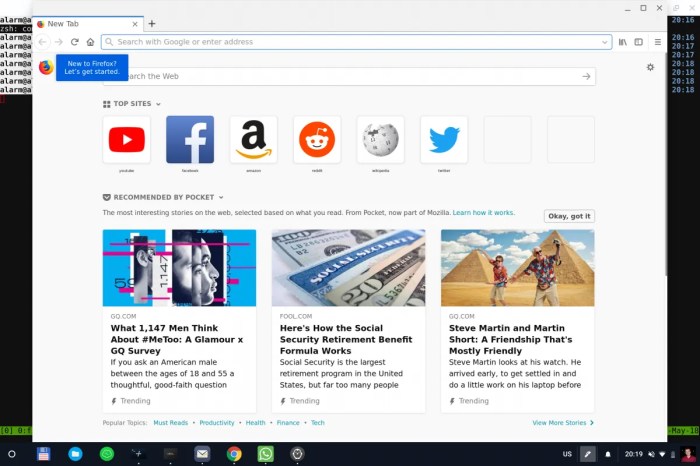
Early user feedback on the Samsung Chromebook Plus Linux app support beta launch reveals a mixed bag of opinions, with some users experiencing significant benefits while others encounter hurdles. This initial response is crucial in shaping the final product and understanding the overall potential for Linux app adoption on Chromebooks.This section delves into the user perspective, highlighting both positive and negative experiences, and exploring potential adoption rates based on the current feedback.
Analysis of online forums and social media comments reveals key trends and insights that will be crucial for future iterations of the Linux app support.
User Feedback on Online Platforms
Initial reactions to the beta launch are diverse, ranging from enthusiastic praise to critical complaints. Users are actively sharing their experiences on various online forums and social media platforms. A significant portion of the feedback centers around the functionality and stability of the Linux apps themselves, alongside the overall user experience on the Chromebook platform.
Positive User Experiences
Positive feedback emphasizes the ability to run a wider range of Linux applications on the Chromebook, significantly expanding its utility beyond its traditional capabilities. Users appreciate the ability to utilize specialized software previously unavailable on the platform, such as specific development tools or specialized scientific applications. Many comment on the seamless transition between the Linux environment and the Chromebook’s native operating system.
For instance, some users are enthusiastic about using Linux-based productivity tools and find the experience highly positive. One user praised the “smooth integration of Linux apps into the Chromebook ecosystem.”
Negative User Experiences
Negative experiences predominantly focus on the occasional glitches, compatibility issues, and performance bottlenecks observed when running certain Linux applications. Some users report encountering unexpected crashes or freezing during specific tasks, hindering the overall user experience. Issues with peripheral support, such as printers or external storage devices, are also frequently cited. One user commented, “While the concept is great, the execution isn’t quite there yet.”
Potential User Adoption Rates
Predicting exact adoption rates is challenging, but several factors suggest a potential for a significant user base. The appeal of running Linux applications on a Chromebook, especially for developers and power users, is strong. The accessibility of Linux applications for diverse needs, from scientific computation to creative design, could also contribute to wider adoption. However, the prevalence of compatibility issues and performance concerns could hinder broader adoption.
The rate of adoption will likely depend on the resolution of these issues in subsequent beta updates. A similar situation was observed in the early adoption of Android apps on tablets, with slow initial adoption followed by a surge after major improvements and bug fixes.
Types of Linux Apps Downloaded and Popularity
| Type of Linux App | Popularity (Estimated based on forum discussions) |
|---|---|
| Productivity (Word Processors, Spreadsheets) | High |
| Development Tools (IDEs, Compilers) | Medium |
| Scientific/Mathematical Applications | Medium |
| Multimedia/Creative Applications | Low |
| Gaming | Low |
The table above provides a preliminary overview of the popularity of downloaded Linux apps. While exact figures are not available, the relative popularity of applications is based on the frequency of mentions and discussion on online forums and social media. Productivity apps show high demand, highlighting the value of broader functionality for everyday tasks. However, the limited adoption of multimedia and gaming apps suggests that more work is needed to attract a wider user base.
Future Implications and Potential Improvements
The Samsung Chromebook Plus Linux app support beta program presents a fascinating opportunity to bridge the gap between Chrome OS and the robust Linux ecosystem. This early access allows users to explore the potential of running Linux applications on Chromebooks, and careful consideration of future improvements will be crucial to maximizing its impact. Early feedback is essential to ensure a smooth and successful transition.
Potential Improvements to the Beta Program
The beta program’s success hinges on addressing user needs and pain points. Improving the compatibility of existing Linux applications with Chrome OS is paramount. Current Linux application performance on Chromebooks needs to be optimized to ensure a seamless user experience. Robust support documentation and tutorials are essential to guide users through the process of installing and utilizing these applications.
Samsung’s Chromebook Plus finally got a Linux app support beta launch, which is pretty cool. This exciting development is particularly interesting given Honda and LG Chem’s plans for a new battery plant in Ohio focused on EV manufacturing; this Ohio plant could significantly impact the future of electric vehicles and potentially influence the type of software needed for future devices.
Hopefully, this Linux app support will help future Chromebooks keep up with the changing technological landscape.
Future Directions for Linux App Integration
Expanding the types of Linux applications supported is a key future direction. This could include more demanding applications, such as graphic design tools or advanced scientific simulations. Exploring the possibility of integrating a dedicated Linux desktop environment within Chrome OS, offering a more traditional Linux experience, is another important consideration. A potential direction could involve providing a sandboxed environment for running Linux applications to ensure system stability.
So, Samsung’s Chromebook Plus finally got a Linux app support beta launch! It’s exciting to see this kind of innovation. Speaking of cool tech, I was really digging this recent interview with Daniel Lopatin from Oneohtrix Point Never, where he discussed his creative process and his “Garden of Delete” project. oneohtrix point never daniel lopatin interview garden of delete Hopefully, this Linux support will allow for even more diverse and creative applications on the Chromebook platform, pushing the boundaries of what’s possible.
Potential Impact on the Broader Linux Ecosystem
The integration of Linux apps on Chromebooks could significantly increase the accessibility and adoption of Linux technologies. This integration could attract a new generation of users to the Linux ecosystem, who might otherwise be hesitant to explore it due to the learning curve or perceived complexity. It also provides an avenue for Linux developers to reach a wider audience, potentially fostering innovation and growth within the Linux community.
Table of Potential New Features and Functionalities
| Feature | Functionality | Description |
|---|---|---|
| Improved Application Compatibility | Enhanced support for a wider range of Linux applications. | Addressing compatibility issues by creating a more robust interface between Chrome OS and Linux applications. This could include using virtualization techniques or other approaches to better handle various application requirements. |
| Dedicated Linux Desktop Environment | Integration of a full Linux desktop environment within Chrome OS. | Providing a seamless transition for users accustomed to traditional Linux desktops. This could include integration with existing Linux desktop environments like GNOME or KDE. |
| Enhanced Performance Optimization | Improving the performance of Linux applications. | Optimizing resource allocation and improving overall responsiveness, especially for demanding applications. Benchmarking and testing are crucial in evaluating performance improvements. |
| Advanced Security Features | Implementing enhanced security measures for Linux applications. | Implementing a more robust sandboxed environment to protect the Chromebook’s operating system from potential vulnerabilities within Linux applications. This could include stricter access controls and security auditing. |
| Comprehensive Documentation and Tutorials | Creating user-friendly documentation and tutorials. | Providing detailed instructions for installing, configuring, and using Linux applications on Chromebooks. This will make the process more accessible to both technical and non-technical users. |
Comparison with Other Chromebook Manufacturers
Samsung’s Chromebook Plus, with its Linux app support beta, enters a growing but still relatively nascent market. The initiative positions Samsung as a potential leader in offering a broader range of applications on Chromebooks, but the landscape is competitive. Other Chromebook manufacturers are also exploring Linux support, though their approaches and levels of integration vary significantly. Understanding this competitive landscape is key to evaluating Samsung’s unique strengths and weaknesses.
Competitive Landscape of Linux App Support on Chromebooks
The Linux app support on Chromebooks is currently a space of experimentation and limited availability. While some manufacturers are exploring this avenue, widespread adoption is still in its early stages. This limited adoption is primarily due to the complexity of integrating Linux environments with the Chromebook’s underlying Chrome OS. The performance and stability of Linux apps within this ecosystem remain key concerns for both users and developers.
The successful implementation of Linux app support hinges on factors like compatibility, performance optimization, and the availability of developer tools and resources.
Samsung’s Approach Compared to Others
Samsung’s approach to Linux app support on the Chromebook Plus is notable for its focus on user-friendliness. While specifics on the beta are still emerging, it suggests a more streamlined integration process compared to some other Chromebook manufacturers. Samsung’s potential advantage lies in its experience with developing software and hardware solutions that seamlessly integrate diverse operating systems.
Unique Strengths and Weaknesses of Samsung’s Approach
Samsung’s unique strengths include its likely emphasis on developer support and resources, potentially fostering a vibrant Linux app ecosystem on its Chromebooks. A well-designed user interface for accessing and managing Linux apps would significantly enhance user experience. Potential weaknesses might stem from limited support for specific Linux distributions or lack of extensive community involvement in the initial stages of the beta.
It is also important to consider the ongoing challenges of maintaining compatibility between Chrome OS and various Linux distributions.
Table of Linux Distributions Supported
This table provides a snapshot of Linux distributions currently supported (or planned to be supported) by different Chromebook manufacturers. It is crucial to note that support levels and specifics may vary.
| Chromebook Manufacturer | Linux Distributions Supported | Details/Comments |
|---|---|---|
| Samsung | (Beta, likely to be specified during the official launch) | Limited information available; expected to be expanded as the beta progresses. |
| ASUS | Limited support, focused on specific use cases | Support may be confined to certain models or limited functionalities. |
| Acer | (No publicly announced support) | Limited or no information regarding Linux app support. |
| Google (Chrome OS) | Native integration through Linux containers | While not a separate manufacturer, Google’s Chrome OS has its own Linux containerization approach. |
Potential Use Cases for Linux Apps on Chromebooks
Linux app support on Chromebooks, particularly on Samsung Chromebooks, opens up a world of possibilities for both personal and professional use. By bridging the gap between the familiar Chromebook experience and the power of Linux, users can unlock enhanced productivity and creativity, tailored to their specific needs. This expanded capability goes beyond simple file management and offers a more versatile platform for diverse tasks.This section explores various use cases, showcasing how Linux apps can significantly enhance the value proposition of Samsung Chromebooks, moving beyond the typical web-centric approach.
We will detail how these apps can empower users in both professional and personal settings.
Professional Applications of Linux Apps
Linux’s robust ecosystem of tools provides a wide array of professional applications, many of which are already being used in various industries. Their inclusion on Chromebooks brings these tools to a wider audience.
- Software Development: Programmers can leverage Linux’s comprehensive development environments and tools within a familiar Chromebook environment. This allows for seamless code editing, compilation, and debugging, offering a portable and versatile development setup. Examples include using popular IDEs like VS Code running in a Linux container or compiling code using GCC or other Linux-specific compilers.
- Data Analysis and Visualization: Linux offers powerful tools like R and Python for data analysis and visualization. Researchers, analysts, and data scientists can utilize these applications on their Chromebooks for tasks such as statistical modeling, data mining, and creating insightful visualizations. This enables data-driven decision-making, even when away from a dedicated workstation.
- Digital Design and Graphic Design: Linux possesses numerous professional-grade graphic design tools. This enables graphic designers and digital artists to create and edit images, manipulate videos, and design layouts on their Chromebooks, offering flexibility and portability in a mobile-first workflow.
Personal Applications of Linux Apps
Beyond the professional realm, Linux apps also enrich personal use cases on Chromebooks.
- Advanced Customization and Configuration: Linux allows for granular control over system settings and configurations, enabling users to tailor their Chromebook to their specific needs and preferences. This is particularly valuable for power users who require highly customized environments. This could include fine-tuning network settings or managing specific software configurations.
- Open Source Software Access: Users can access and utilize a wide range of open-source software on Chromebooks. This broadens the range of options available for tasks like multimedia editing, audio processing, or specialized academic software. Examples include using GIMP for image editing or Audacity for audio editing.
- Enhanced Productivity and Organization: Linux apps often offer robust organizational tools. This includes specialized note-taking applications, project management tools, and calendar applications, catering to specific user needs and preferences. Examples include using the command-line for advanced file organization or specific calendar applications that integrate with Linux tools.
Summary Table
| Category | Professional Use Cases | Personal Use Cases |
|---|---|---|
| Software Development | Code editing, compilation, debugging | Open-source software access |
| Data Analysis | Statistical modeling, data visualization | Advanced file organization |
| Digital Design | Image manipulation, video editing, layout design | Multimedia editing |
| Customization | System configuration | Personalized environment |
| Productivity | Project management | Note-taking, calendar management |
Addressing Potential Security Concerns: Samsung Chromebook Plus Linux App Support Beta Launched
Running Linux applications on a Chromebook introduces unique security considerations, shifting the focus from the primarily sandboxed Chrome OS environment to a more complex multi-system architecture. This necessitates a robust security strategy to safeguard user data and prevent potential vulnerabilities. Samsung has implemented various measures to mitigate these risks, particularly concerning the integrity of the Chromebook’s overall security posture.Samsung’s approach to Linux app security prioritizes a layered defense mechanism.
This involves not only the application itself but also the operating system’s ability to isolate and contain potential threats. By implementing a secure kernel and utilizing strong access controls, Samsung aims to prevent malicious code from propagating beyond the designated Linux environment. This approach is crucial for maintaining the Chromebook’s overall security, which is paramount to user trust.
Security Measures Implemented, Samsung chromebook plus linux app support beta launched
Samsung’s Linux app support beta incorporates several key security measures to protect user data and the Chromebook itself. These include strict sandboxing mechanisms, which confine Linux applications within a designated virtual environment, preventing them from interacting with sensitive parts of the Chrome OS kernel. This isolated environment acts as a buffer, preventing malicious code from potentially harming the rest of the system.
Vulnerability Identification and Mitigation Strategies
A rigorous vulnerability assessment process is crucial for identifying and addressing potential security gaps. Samsung employs automated security scanning tools to identify known vulnerabilities in both the Linux applications and the underlying Linux environment. This proactive approach ensures that potential exploits are identified and addressed before they can be exploited. Further, the team conducts penetration testing to simulate real-world attacks and evaluate the effectiveness of the security measures.
For example, scenarios simulating network attacks and unauthorized access attempts are part of this process.
Security Protocols in Place
| Security Protocol | Description |
|---|---|
| Kernel Isolation | Linux applications run within a secure virtual machine (VM) environment, isolated from the Chrome OS kernel. |
| App Sandboxing | Applications are confined to a dedicated sandbox, limiting their access to system resources. |
| Access Control Lists (ACLs) | Strict ACLs control which system resources each application can access, further mitigating the risk of unauthorized data modification or access. |
| Regular Security Audits | Ongoing security audits and penetration testing are conducted to proactively identify and address potential vulnerabilities. |
| Automatic Updates | Regular updates to the Linux environment and supporting components ensure the application environment remains patched against known vulnerabilities. |
Final Review
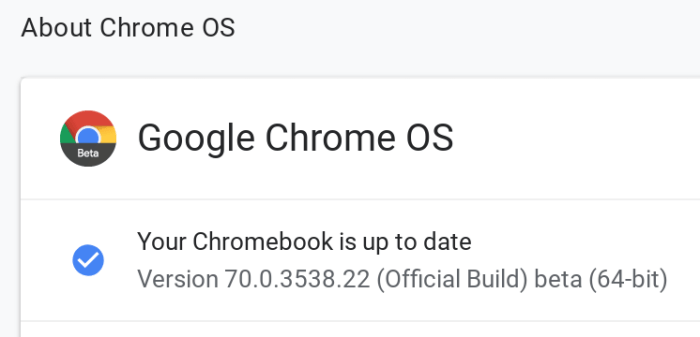
The Samsung Chromebook Plus Linux app beta launch marks a significant step forward in the evolution of Chromebooks. It presents a compelling opportunity for users to explore a broader range of applications and functionalities. The potential impact on user adoption, security, and the broader Linux ecosystem remains to be seen, but the initial feedback and technical aspects explored in this beta provide a fascinating starting point for further exploration.
We’ll delve deeper into the specific features, performance benchmarks, and potential security considerations surrounding this exciting new development.



